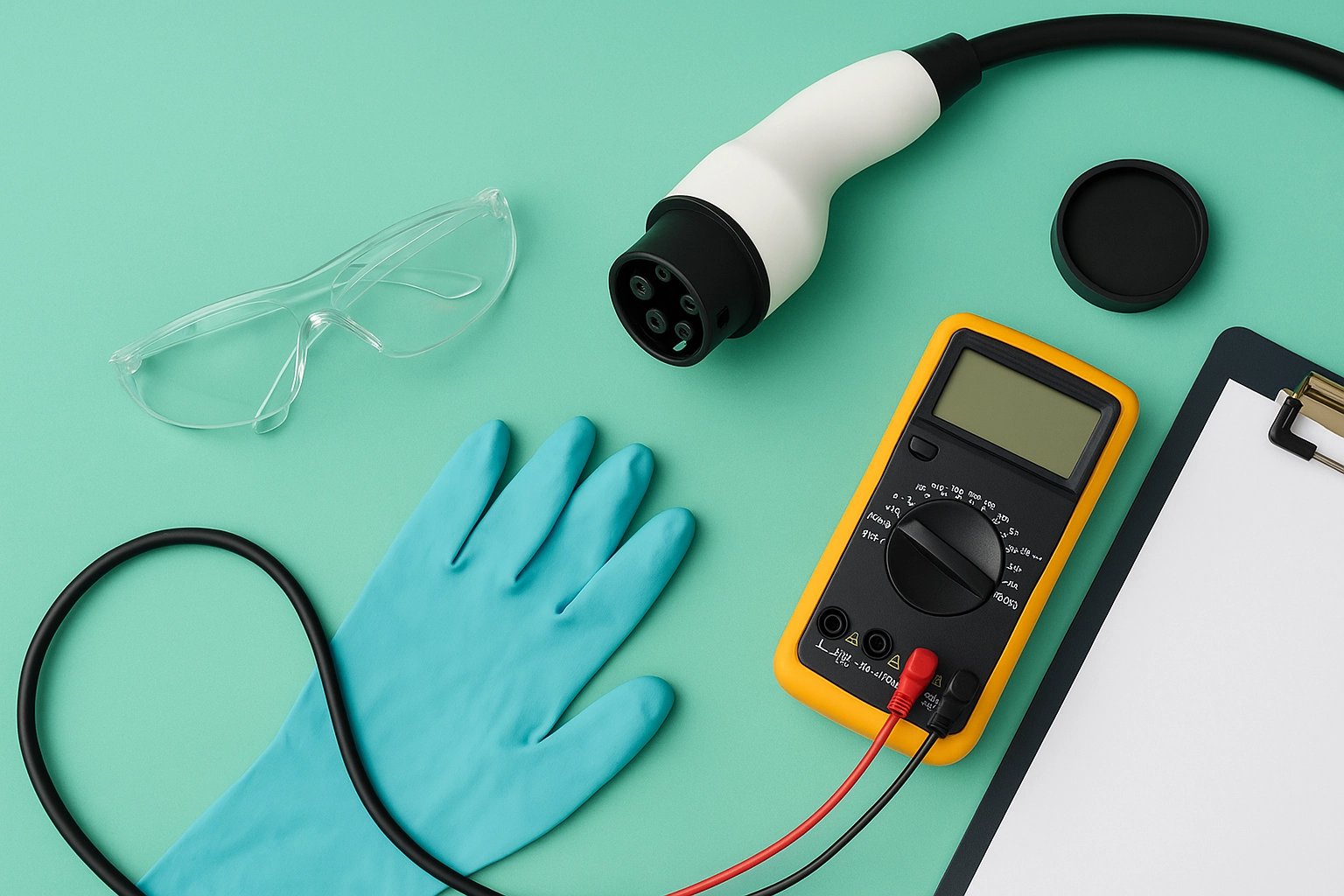GB T 29317 EV Charger Power Quality Performance Test
The GB/T 29317 standard is a crucial document in China that specifies the requirements and test methods for power quality performance of electric vehicle (EV) charging equipment. Compliance with this standard ensures that EV chargers meet stringent quality standards, which directly impacts safety, efficiency, and reliability. This test is essential for manufacturers aiming to penetrate markets within China and adhere to local regulatory requirements.
Compliance with GB/T 29317 not only enhances the performance of EV chargers but also ensures they are compatible with various power supply networks. The standard addresses key parameters such as voltage, current, harmonic distortion, frequency stability, and transient response. These factors are critical for maintaining a stable and safe charging experience that meets the expectations of both users and regulatory bodies.
The test procedures outlined in GB/T 29317 cover a range of scenarios including nominal load conditions, fault simulation tests, and environmental stress tests. The apparatus used for these tests includes advanced power quality analyzers capable of capturing minute fluctuations in electrical parameters. This ensures precise measurement and accurate reporting, which are vital for ensuring the reliability and safety of EV chargers.
Compliance with this standard is also a strategic move for manufacturers looking to differentiate their products in a competitive market. It demonstrates commitment to quality and safety, enhancing brand reputation and customer trust. Additionally, it simplifies the process of obtaining certifications required for market entry into China.
The importance of power quality cannot be overstated, especially given the increasing adoption of electric vehicles worldwide. Poor power quality can lead to inefficiencies in charging processes, increased wear on equipment, and safety hazards. By adhering to GB/T 29317, manufacturers ensure that their chargers are robust enough to handle various conditions encountered in real-world applications.
The testing process involves rigorous procedures designed to evaluate the charger's ability to maintain stable power quality under different load conditions and environmental stresses. This includes simulating scenarios such as short circuits, voltage sags, and harmonic disturbances. The test setup typically consists of a controlled environment where the charger is connected to a standardized power supply and monitored using high-precision instruments.
The results of these tests are critical for understanding how well the charger performs under real-world conditions. Compliance with GB/T 29317 ensures that the charger can handle variations in local power networks, providing reliable charging services even during peak demand periods or adverse weather conditions. This is particularly important as more cities around the world implement policies to encourage EV adoption.
In conclusion, compliance with GB/T 29317 is not just a regulatory requirement but also a strategic decision that can significantly enhance a manufacturer's reputation and market position. By adhering to this standard, manufacturers ensure their products meet the highest quality standards, providing users with safe and efficient charging experiences.
Why It Matters
The importance of power quality in EV chargers cannot be overstated. Poor power quality can lead to inefficiencies in charging processes, increased wear on equipment, and safety hazards. By adhering to GB/T 29317, manufacturers ensure their products meet the highest quality standards, providing users with reliable and efficient charging experiences.
Compliance with this standard is crucial for several reasons:
- Maintains stability in power supply during peak demand periods
- Reduces wear on equipment due to consistent voltage levels
- Ensures safety by preventing electrical disturbances that could cause fires or other hazards
- Improves overall user experience through consistent and reliable charging performance
- Meets regulatory requirements for market entry into China
- Demonstrates commitment to quality, enhancing brand reputation and customer trust
The standard is particularly relevant given the increasing adoption of electric vehicles worldwide. As more cities implement policies to encourage EV use, ensuring that chargers meet stringent quality standards becomes essential for maintaining a sustainable and efficient transportation system.
Industry Applications
GB/T 29317 is widely applicable across various sectors within the automotive industry. This includes:
- Manufacturers of EV charging infrastructure
- R&D teams focusing on improving power quality in charging equipment
- Quality assurance departments responsible for ensuring product performance
- Compliance officers tasked with meeting regulatory requirements
- Safety engineers involved in assessing potential risks associated with power supply interruptions
The standard is particularly beneficial for organizations looking to expand their operations into the Chinese market. By adhering to GB/T 29317, manufacturers can ensure their products meet local standards and regulations, thereby facilitating smoother market entry.
Additionally, this test is valuable for R&D engineers who are continuously working on improving power quality in EV chargers. The rigorous testing procedures outlined in the standard provide a benchmark for evaluating new designs and technologies. This ensures that innovations are not only effective but also safe and reliable.





